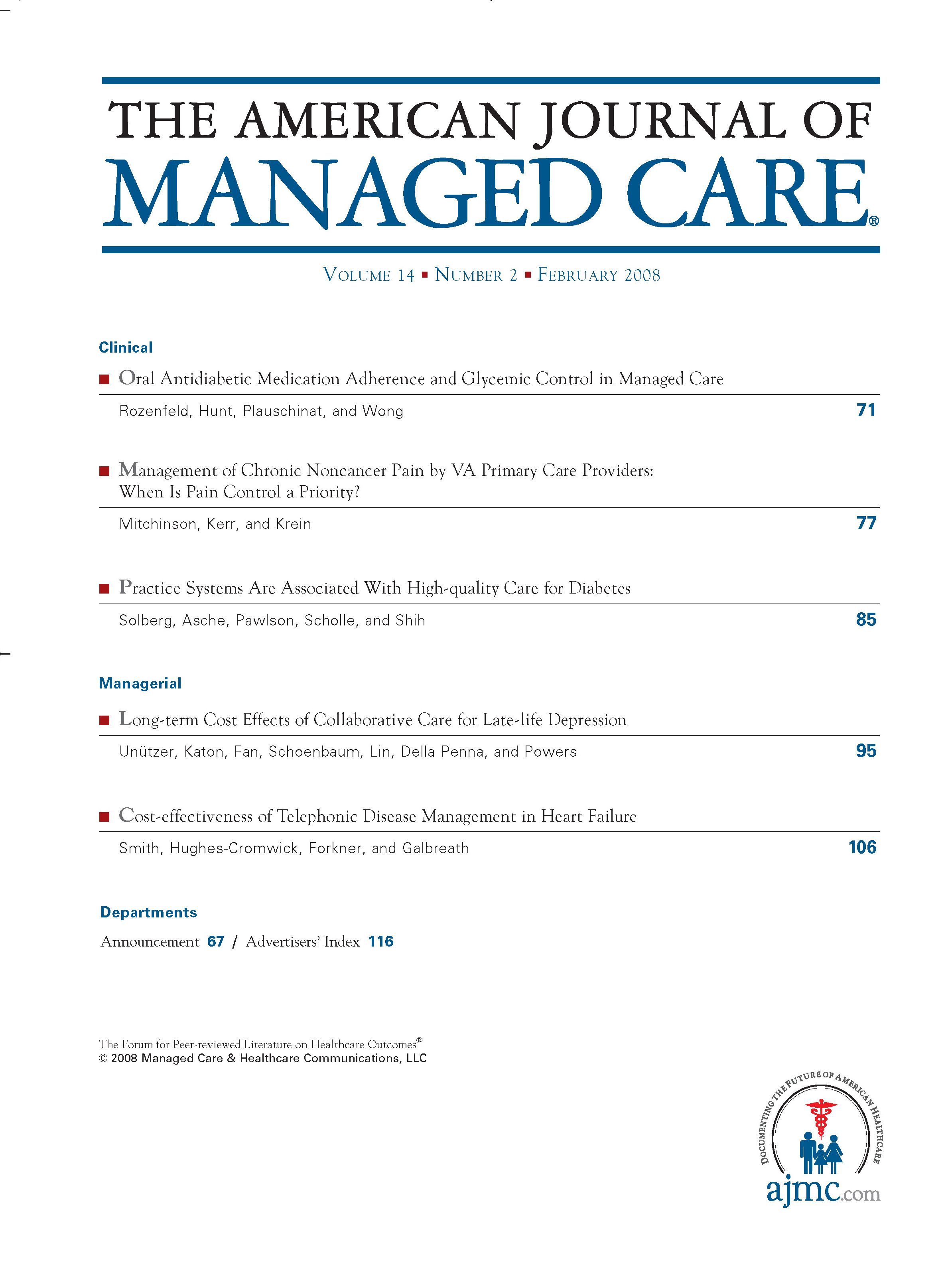- Center on Health Equity & Access
- Clinical
- Health Care Cost
- Health Care Delivery
- Insurance
- Policy
- Technology
- Value-Based Care
Improvements in Identifying Persistent Asthma Patients Using HEDIS Data
test
TO THE EDITORS
We applaud the research performed by David Mosen and colleagues, which suggests improvements in identifying persistent asthmatics when reporting Health Plan Employer Data and Information Set (HEDIS) data.1 We were pleased that the Kaiser Permanente Health Care Program had solicited our input into the research design, so it would help resolve questions about the specificity of the HEDIS asthma measure. The analysis determined that extending the eligibility criteria to 2 years would strengthen the specificity of the current HEDIS measure by improving administrative case identification of true persistent asthmatics.
The authors' recommendation to increase the eligibility from 1 year of identification to 2 years has already been included in the latest measure specifications, which were published last July.2 This is a good example of accelerating the transfer of research into practice, and we encourage this sort of collaboration to ensure that HEDIS remains a robust and valid set of measures for performance measurement.
Phil Renner, AVP
Kevin Weiss, MD
Min Gayles Kim, MPH
National Committee for Quality Assurance Washington, DC
1. Mosen DM, Macy E, Schatz M, et al. How well do the HEDIS asthma inclusion criteria identify persistent asthma? Am J Manag Care. 2005;11:650-654.
2. National Committee for Quality Assurance. Technical Specifications. Washington, DC: National Committee for Quality Assurance; 2005;460. HEDIS 2006. Health Plan Employer Data & Information Set; vol. 2.

Subjective and Objective Impacts of Ambulatory AI Scribes
January 8th 2026Although the vast majority of physicians using an artificial intelligence (AI) scribe perceived a reduction in documentation time, those with the most actual time savings had higher relative baseline levels of documentation time.
Read More
Telehealth Intervention by Pharmacists Collaboratively Enhances Hypertension Management and Outcomes
January 7th 2026Patient interaction and enhanced support with clinical pharmacists significantly improved pass rates for a measure of controlling blood pressure compared with usual care.
Read More
HEDIS Glycemic Goal Achieved Using Control-IQ Technology
December 22nd 2025A greater proportion of patients with type 1 diabetes who used automated insulin delivery systems vs multiple daily injections achieved the Healthcare Effectiveness Data and Information Set (HEDIS) glycemic measure.
Read More
Linking Data to Determine Risk for 30-Day Readmissions in Dementia
December 22nd 2025This study found that certain characteristics in linked electronic health record data across episodes of care can help identify patients with Alzheimer disease and related dementias at high risk of 30-day readmissions.
Read More

